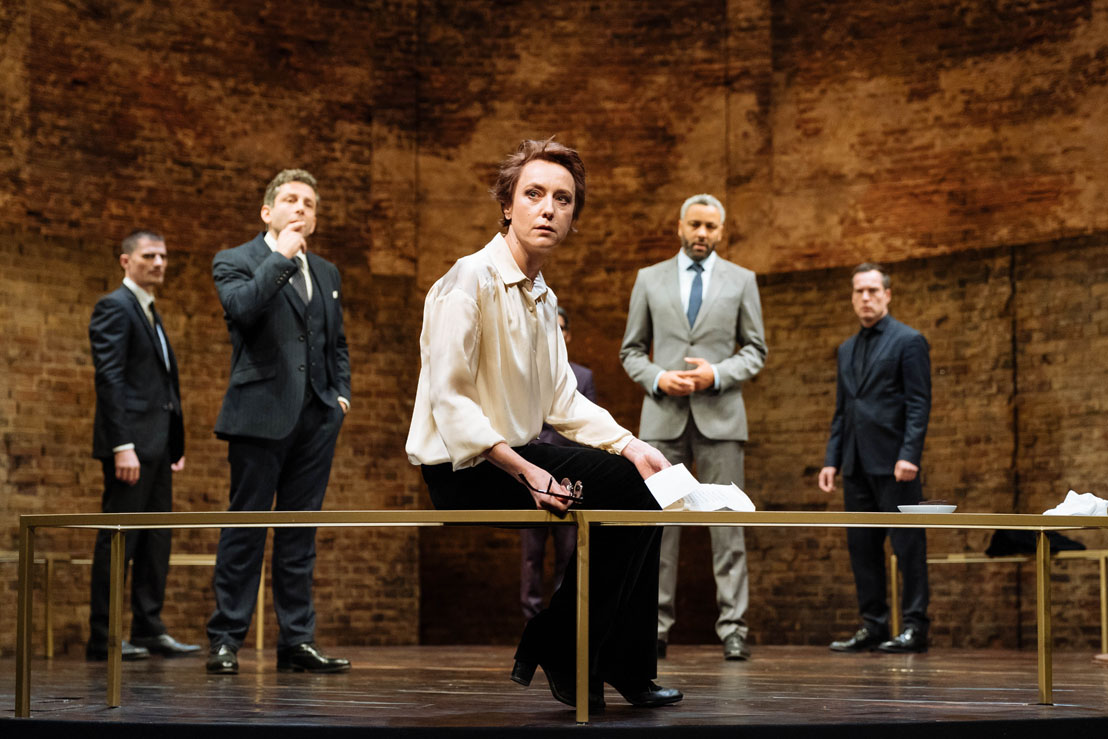
There is a sense in which Schiller’s play is that rarest of creatures, a history written by the loser, after all, Catholic Europe had lost England to Protestantism. Which is not to suggest it is unfair to Elizabeth whilst giving Mary a louder crack of the whip than an English audience might find comfortable. It does however suggest that at the Elizabethan court the demands of statecraft trump the calls of sisterhood, morality and justice.
When you have a couple of top drawer actresses each capable of playing either lead in such a play as this the opportunity arises for the added novelty of spinning a coin to decide which of the two will play which role on the night. Last night Lia Williams was Mary and Juliet Stephenson, Elizabeth.
Robert Icke’s adaption leaves behind the formality of German blank verse for an eminently actable prose that, notwithstanding, retains enough rhythm to lift it out of the everyday. Unnecessary historical exposition is also ditched leaving us with the dramatic core of the original.
Other aspects of the production sit less comfortably. Even given the contemporary setting there is much inappropriate pointing at and touching of the body royal, which had the effect of undermining the dignity of the participants. At times we could have been observing the machinations of a bunch of lounge-suited, middle ranking civil servants. Nevertheless there is enough to provoke a wry grin of recognition as fake news jostles with fact, moral dilemma and political expediency in the court of public opinion.
To sign or not to sign is Elizabeth’s dilemma. Then there is the sensitive question of when is signing a death warrant not signing? (Answer: When, ‘Do your duty.’ is deliberately ambiguous) Then again the shadow of Brexit falls momentarily as Elizabeth tries to align, ‘The people’s lust for death’, with her own doubts by observing, ‘I have to respect their uninformed opinions.’ Thus is Schiller’s characterization of the tension between political expediency on the one hand and morality and justice on the other, resolved by Elizabeth who is painfully aware that personal morality has political implications.
Ms Stephenson gives us an Elizabeth impatient with the requirements of succession and alliance building; a ruler confident in the exercise of her power yet troubled by the inner conflict with her moral self. At the imagined meeting at Fotheringay there is the sense of an Elizabeth looking, not for a reason to be merciful, but a reason to be firm in the political resolve she knows to be the foundation of her authority. Her sensitivity over the romantic appeal of Mary is revealed in an explosion of anger against Talbot (Michael Byrne) who, with the frankness of age, mentions the latter’s beauty.
Ms Williams, vulnerable and breathless in the ardour of her cause brought to mind St Joan. Something etherial seemed to infuse her movement and her yearning for freedom, spiritual and physical, which is paradoxically achieved by her final capitulation and confession. This is contrasted by the strange anachronistic dumb show as, on the death of Mary, Elizabeth assumes the role of Gloriana and is finally trapped in her own created image. Mary’s moral victory is contrasted with an Elizabeth who has become a prisoner in a jail of her own creation. ★★★☆☆ Graham Wyles 6th April 2018

